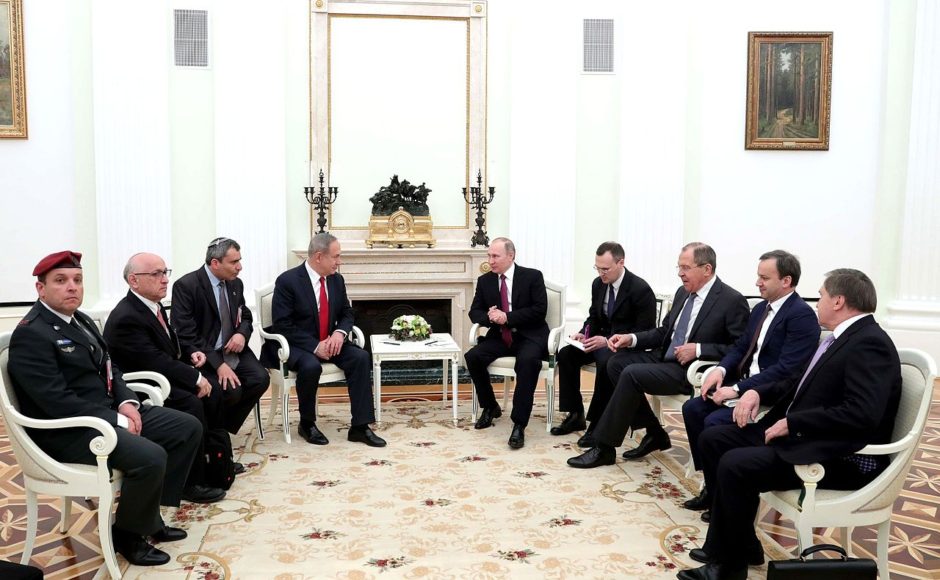Russian President Vladimir Putin is trying to balance Russia’s conflicting interests in war-ravaged Syria. It’s a devilishly difficult exercise that requires nerves of steel and formidable diplomatic skills.
Putin’s competency was put to the test on February 10, following a series of deadly clashes during which Israel downed an Iranian drone in its territory, attacked an Iranian base in Syria, lost an F-16 fighter jet in combat and bombed a network of Syrian anti-aircraft batteries.
Responding to these incidents, the Russian Foreign Ministry urged “all sides” to “show restraint” and warned them not to endanger the lives of Russian soldiers stationed in Syria. For its part, Israel sent a message to Syria and Iran, via Moscow, calling for de-escalation
Russia’s measured reaction was a far cry from the days when the Soviet Union, known again as Russia, routinely sided with Syria and never lost an opportunity to condemn Israel.
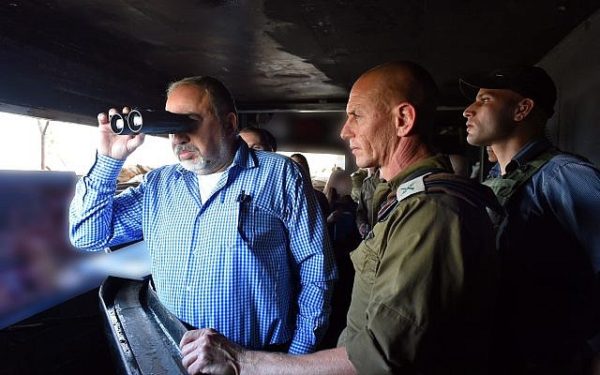
In the wake of the Russian statement, Israeli Defence Minister Avigdor Liberman declared that Israel would “respond to any provocation and defend our crucial security interests.” Nor would Israel permit Russia to impose “any limitations” on its military operations in Syria, he added. But in a telling aside, Liberman said that Israel was in constant contact with Russia, and that their bilateral relationship “is effective, even when we don’t agree.”
The complex geopolitical challenges facing Russia in Syria, engulfed in a civil war since 2011, are daunting.
Syria, Moscow’s principal Arab ally in the Middle East, has been at war with neighboring Israel since its creation in 1948. Russia, on the other hand, has had cordial relations with Israel — Syria’s arch enemy — since the dissolution of the Soviet Union in 1991.
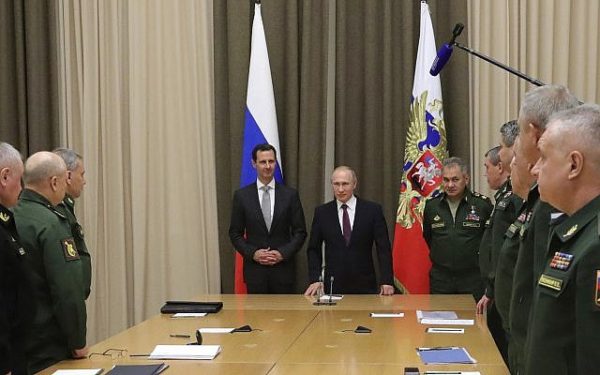
Russia has been deeply invested in Syria since the 1960s. But in September 2015, Putin upgraded Russia’s presence there, sending aircraft, ground crews and advisors to prop up the faltering regime of President Bashar al-Assad, who seemed in danger of losing the war.
In line with its commitment to preserve Assad’s government, Russia aligned itself with Syria’s staunchest regional allies, Iran and Hezbollah, two of Israel’s most bitter and outspoken enemies.
While Russia is determined to protect Syria, it respects Israel’s security concerns and has no desire to be sucked into an armed confrontation with Israel, which is backed by another superpower, the United States.
This was not always the case.
When Israel and Egypt were embroiled in the War of Attrition along the Suez Canal after the 1967 Six Day War, thousands of Soviet military personnel were stationed in Egypt in support of the Egyptian regime. Tensions reached a peak in the summer of 1970, when Israel shot down five Soviet MIGs in a dogfight.
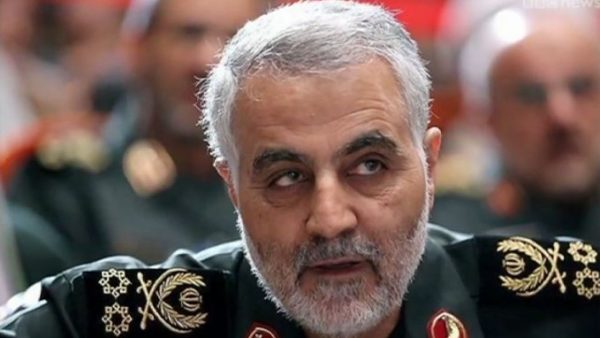
Israel and Russia are no longer battlefield adversaries, but one of Russia’s main allies in Syria, Iran, seeks to destroy Israel. General Qassem Soleimani, the commander of Iran’s Quds Force, a component of the Revolutionary Guards, said this week that his objective is to “wipe out the Zionist entity.” He was merely voicing a longstanding Iranian policy. From Iran’s supreme leader, Ayatollah Khamenei, to its president, Hassan Rouhani, the Iranian leadership is on record as opposing Israel’s existence.
Russia, having been one of the first countries to recognize Israel, is clearly against Iran’s stance toward Israel. Nor is Russia in favor of Iran’s project to establish military bases in Syria close to the Israeli border on the Golan Heights. Moscow is acutely aware that Syria’s long-range stability could be thrown into jeopardy should Iran give Israel a legitimate pretext to attack Syria. But for Russia, Iran has been a useful ally in Syria.

Hezbollah — Iran’s Lebanese surrogate and Syria’s ally — also calls for Israel’s destruction. In 2006, Israel and Hezbollah fought a month-long war in Lebanon. Since then, Hezbollah has amassed an arsenal of about 100,000 missiles and rockets. Hezbollah acquired these projectiles from Iran, Syria and, perhaps, Russia. For whatever it is worth, Moscow denies having sold missiles to Hezbollah.
For the past year or so, Israeli aircraft have repeatedly bombed Hezbollah weapons convoys en route from Syria to Lebanon. Israel has also struck Syrian facilities engaged in the manufacture of precision rockets. Much to the chagrin of Syria, Hezbollah and Iran, Russia has remained conspicuously silent in the face of Israel’s raids.
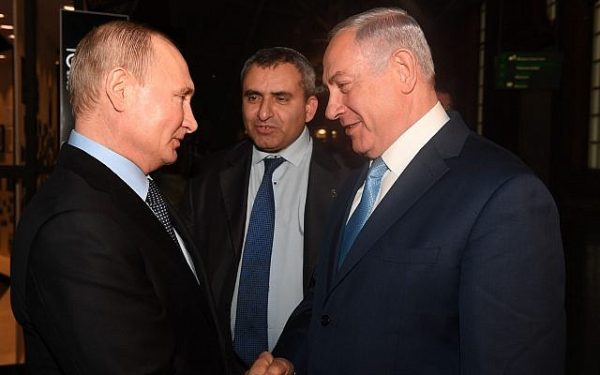
The Israeli government has taken every precaution to ensure that Israeli and Russian planes do not accidentally clash in Syria’s crowded skies. Israeli Prime Minister Benjamin Netanyahu has travelled to Moscow seven times in the past two-and-a-half years to discuss issues of mutual concern with Putin. During his last visit on January 29, Netanyahu told him that Israel would continue operating in Syria and would not tolerate attempts by Iran to entrench itself militarily in Syria. (Netanyahu repeated this assertion in Munich a few days ago).
Netanyahu also told Putin that, if necessary, Israel would take military steps to block Iranian plans. In addition, he informed him that Israel would not allow Iran to build precision weapons factories in Lebanon. “The Russians understand our position, they understand well the significance that we give these things,” said Netanyahu soon after his meeting with Putin.
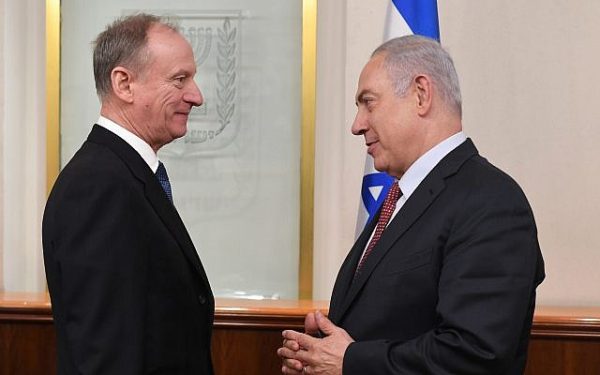
Shortly after their latest talks, Israel hosted a delegation of top Russian security officials headed by Nikolai Patrushev, the secretary of the Russian Security Council. Late last year, Russian Defence Minister Sergei Shoigu visited Israel for the first time. Before that, the Israeli chief of staff, General Gadi Eisenkot, hosted his Russian counterpart in Tel Aviv.
Russian diplomats based in Israel have also addressed issues turning on Iran.
On February 15, the deputy Russian ambassador, Leonid Frolov, said that Russia would support Israel in the event of an Iranian attack on Israel. As he put it, “In case of (Iran’s) aggression against Israel, not only will the United States stand by Israel’s side — Russia, too, will be on Israel’s side.”
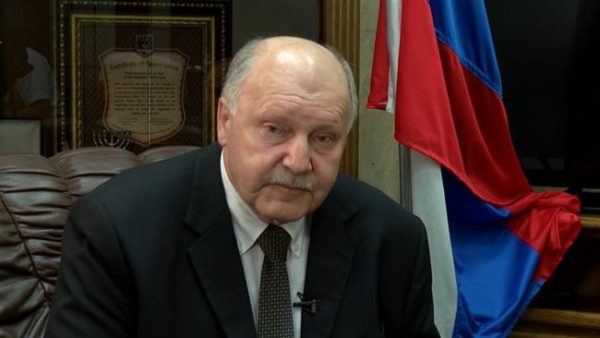
Last November, Russian ambassador Alexander Shein claimed that Iran’s military buildup in Syria was dedicated solely to the “war on terrorism,” or the ongoing battle against Islamic State and Syrian rebels fighting to topple the Assad regime. He reiterated Russian Foreign Minister Sergei Lavrov’s recent comment that Iran’s presence in Syria is “legitimate.”
Israel does not buy Lavrov’s argument, but Israel will have to grin and bear it as Syria, Russia, Iran and Hezbollah coordinate their resources to crush Assad’s opponents. Russia, however, will most likely try to defuse tensions between Israel and its enemies, Syria, Iran and Hezbollah. But the day may yet come when a military incident in Syria spins out of control and triggers a war that no one, not even the Russians, can avert.
